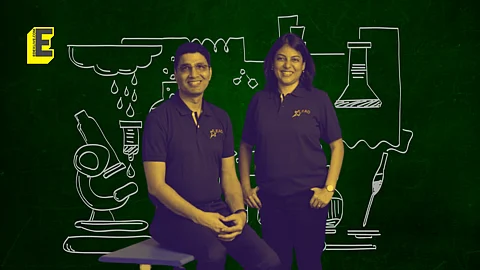

Every year on February 28, India celebrates National Science Day to honour Sir CV Raman’s ground-breaking discovery of the Raman Effect. But beyond commemorating the renowned physicist and Nobel laureate’s historic achievements, this day is also a powerful reminder that Science is about much more than just teaching theory in schools.
It’s about inspiring students to go beyond textbooks and explore the wonders of the world around them. Science is everywhere around us!
Science lessons should be interactive and should spark student curiosity about the ‘how’ and ‘why’ of all natural phenomena around them.
Why is the sky blue? How do plants grow? Since science is rooted in facts, it encourages students to question, experiment, and seek answers to life’s many challenges. In fact, studying science helps students develop the skills needed to understand and innovate within the world around them — critical thinking and curiosity, for instance.
However, all of these benefits are lost when students memorise science concepts without understanding. And so, schools must use a hands-on, application-based approach that makes learning science fun, immersive and interactive.
Technologies such as Artificial Intelligence (AI) and Virtual Reality (VR) can help build a strong foundation in science by allowing each student to learn science at their own pace; and by interacting with concepts in 3D.
Science education should feel like a new discovery each time. Teachers must explain the science behind real-life scenarios. This approach will boost scientific thinking and logical reasoning, making learning more enjoyable and inculcating a love for science.
Science is best understood when students learn by doing, versus just reading or listening. With hands-on experiments and activities, students can observe, question and test scientific concepts in real time.
For example, instead of just reading about photosynthesis, students should grow plants in different light conditions to see how sunlight affects their growth. Such an inquiry-based approach will motivate students to participate in real-life projects and develop problem-solving skills.
Science can be made even more interesting if students are taught to apply their learnings to everyday experiences.
For instance, they can learn about air pollution by measuring the air quality around their school or by discussing ways to reduce pollution. Similarly, schools can teach energy conservation by advising students to switch off lights when not in use, or by comparing electricity consumption in different appliances. They can also learn about food chains by observing how crops are grown or by visiting local farms.
A scientific temperament is a way of thinking that includes asking questions, testing ideas, and using facts. This helps students think clearly and solve real-world problems.
This National Science Day, I urge schools to invest in teacher training, curriculum redesign, and interactive learning resources to transform their science classes into immersive journeys that build student ability to think like scientists.
Schools can do this in three ways:
- By using technology-driven, proven school systems that make science concepts relatable for students
- By adopting flexible, student-centric approaches focused on conceptual understanding
- By inspiring students to think critically, ask questions and solve problems by ‘doing’, and not just reading or listening
To shape a future full of new ideas, schools in India must rethink science classes as hands-on spaces where students explore, experiment, and turn challenges into opportunities to discover.
(The author, Sumeet Mehta, is Co-founder and CEO of LEAD Group, India's first school EdTech unicorn.)
